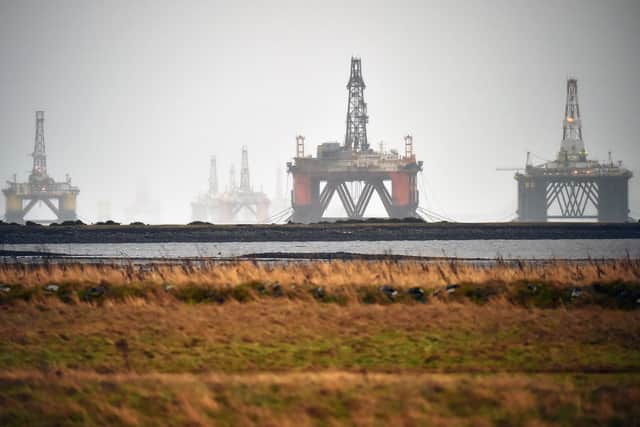Is Scottish Government set to end oil and gas industry? Here's what the Energy Strategy really said about fossil fuels – Dr Richard Dixon
The long-awaited new strategy is a draft and public responses are invited by early April. It foresees a rapid increase in renewable energy generation, continues to rule out fracking and finally admits that hydrogen is never going to be heating people’s homes. But it also has some weaselly words on nuclear power and continues half-hearted support for the Acorn carbon-capture project.
It includes the first ‘just transition’ plan to help workers leave the fossil fuel sector and get into careers in renewables and energy efficiency, predicting 77,000 jobs in green energy production by 2050.
Advertisement
Hide AdAdvertisement
Hide AdIt solidifies a vital policy change that the SNP has been talking about for a while – the end of maximising economic recovery as a policy goal for fossil fuels. Still, in UK policy, law and licensing this is the aim – to get out every last drop possible, with 100 new proposals in the pipeline. Yet, the International Energy Agency, not usually a radical body, said in 2021 that, to limit global warming to 1.5 degrees Celsius, there should be no new oil and gas developments anywhere in the world, and that production must decline. Last week Westminster’s Environmental Audit Committee challenged the UK Government to set a date for the end of production.
Scotland's Energy Strategy does not actually say that there should be no new oil and gas licences or set a date for the end of fossil fuel production. Instead, it asks whether the Scottish Government should support a presumption against new licences, and a process of phasing out.
It calls for the UK Government’s useless climate checklist for new oil and gas licences (will it trash the climate? Yes. OK, never mind) to be improved. And it asks if this test should be applied to fields which have been approved but where work has not yet started, like Cambo and Rosebank.
Importantly it states that any discussion of the fossil fuel industry’s climate impact must include the emissions resulting from the use of their products, not just those that come from extracting the oil and gas, as the industry loves to do.
The Bute House agreement between the Scottish Green Party and the SNP made a commitment to an independent scientific review of the role of oil and gas in Scotland’s energy future, including a comparison to the reduction in fossil fuel use that is needed to meet the Paris Agreement targets of keeping the planet’s final temperature rise well below 2C and preferably below 1.5 C (the world is already over 1C and heading for 3C, with 2022 Scotland’s hottest year on record).


This work is not quite finished but the government has promised to publish the full analysis before the end of the consultation. If done right, it surely cannot fail to agree with the IEA and conclude that no new licences should be issued and existing production should be phased out rapidly. The draft strategy is for consultation, please do your bit to make it stronger.
Dr Richard Dixon is an environmental campaigner and consultant
Comments
Want to join the conversation? Please or to comment on this article.